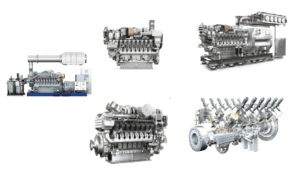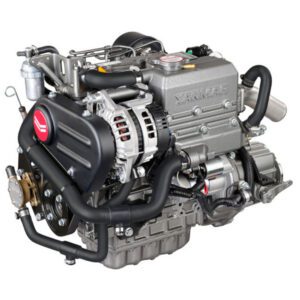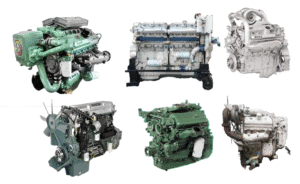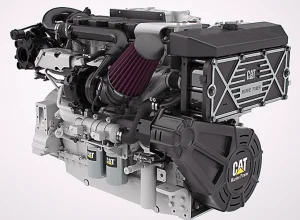If we ask what is that component that keeps any machinery running smoothly, either marine vessel or car, what would be your answer?
Most of you will respond: Engine.
The engine is a crucial component of the vessel. But it depends on fuel to run, and for it to function efficiently. The fuel further needs to be supplied in small, meticulously measured amounts.
Basically, there is a system behind this process that keeps things going smoothly.
And that system is a fuel injection pump.
A fuel injection pump is the part that makes sure this accuracy is maintained. Every single one of them is tuned to precisely deliver the correct amount of fuel into the combustion chamber through the fuel injector.
Function of Fuel Injector
A fuel injector is a device that atomizes and delivers fuel into an internal combustion engine.
In simple words, it is used to deliver the right amount of diesel fuel at the right time into the pistons to allow the combustion process to take place.
The fuel injector is of two types.
- Diesel Injector
- Gasoline Injector
So, based on the engine type, an injector is used; for instance, if your engine runs on diesel, choose a diesel injector.
Delivering the Right Amount of Fuel:
One of the major roles of the injector is to deliver the right amount of fuel with precession. The entire process starts with the fuel injection pump, a separate component that pressurizes the fuel and delivers it to the injector.
The fuel injector acts like a precisely controlled valve. It opens and closes based on electronic signals from the engine control unit (ECU).
This electronic control ensures the injector delivers the exact amount of fuel needed for efficient combustion, considering factors like engine load and speed.
Improved Fuel Efficiency:
By delivering the exact amount of fuel needed, fuel injectors significantly improve fuel efficiency compared to carburettors.
Reduced Emissions:
Precise combustion leads to cleaner exhaust with lower emissions.
Enhanced Engine Performance:
Controlled fuel delivery and optimized combustion contribute to smoother engine operation and better overall performance.
When it comes to choosing the fuel injector for the vessel, Perkins Fuel Injector T413878 come out as a popular choice.
Why Choose Perkins Fuel Injector T413878?
- Highest quality genuine parts
- As-new quality and performance
- Precision engineered to the latest factory specification
- Competitively priced
- Choice of buying options – new/remanufactured/new-for-old
- 12-month warranty
Overall, the injector is a critical component of marine vessels. However, these injectors can become clogged, worn, or develop leaks over time. As a result, decreased engine performance, reduced fuel efficiency, and potential engine damage. That is why it is essential to maintain them and, if required, replace timely.
Summary:
Enjoying marine life always seems to be an exciting experience, but behind this adventure is the challenge to keep the vessels in top condition to truly enjoy the vibe of the sea.
To keep the vessel well maintained, Perkins Parts plays a key role. Above, we have listed a few reasons you should trust Perkins. If you agree with the authenticity of the brands and are looking for spare parts, contact our experts at ALFA Marine Spare Parts. We offer a range of spare parts from different reputed brands.
FAQ
What is the Function of a Fuel Injector?
A fuel injector delivers the precise amount of fuel into the engine’s combustion chamber for optimal combustion and performance.
Why Does a Fuel Injector Fail?
Fuel injectors can fail due to clogging, wear and tear, or electrical issues.
How to Test if a Fuel Injector is in Working Condition?
Test a fuel injector by performing visual inspections, resistance tests with a multimeter, fuel pressure tests, and observing the spray pattern.
How Should I Clean a Fuel Injector?
Clean a fuel injector using a cleaning kit, adding a cleaner to the fuel tank, or opting for professional ultrasonic cleaning.
Why should I Choose Perkins Fuel Injector?
Perkins fuel injectors are known for their reliability, efficiency, and compatibility with a wide range of engines, ensuring optimal performance and longevity.







